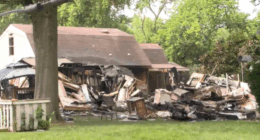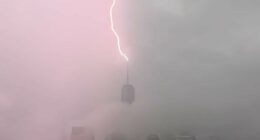Share this @internewscast.com
Newcastle are dealing with a furious backlash from lucrative corporate supporters who are planning to boycott home cup matches after their allocation for the Carabao Cup final was slashed, Confidential can exclusively reveal.
One box holder says he feels ‘robbed and conned’ after the 10 seats for which he pays more than £50,000 per season were rewarded with only four tickets for the Wembley final on March 16.
Two years ago, for the Carabao Cup final defeat by Manchester United, corporate clients were given 10 tickets each and had expected the same this time around. They were not told in advance by the club that it could be different.
Angry phone calls to account managers followed and one of the reasons given for the cut was that the club has ‘more partners’ to satisfy compared to two years ago. We are aware of several heated exchanges in recent days.
Their fury intensified this week when an email then invited them to pay upwards of £3,000 to use their box for the forthcoming FA Cup fifth round tie versus Brighton in early March.

High-spending corporate box holders have seen their Wembley allocation cut by 60 per cent compared to two years ago

The furious fans were not told in advance that the allocations had been cut

We understand a group of box holders plan to boycott the Brighton FA Cup game next month
We understand a group of box holders are now planning to boycott this fixture and, during the next home Premier League game on February 23, they will lobby others to join their cup protest.
Confidential has spoken to several of those involved, and one supporter said: ‘I feel like I’ve been robbed and conned. If the club had been transparent at the start of the season then you can manage expectations or make alternative plans.
‘As it is, I have taken up my box for every cup game and been to the away games in the belief that I would get the full allocation of 10 tickets if we made a final. They set a precedent for the 2023 final and the assumption was they would do the same.
‘People see the word “corporate” and think it’s all business and clients. I used to sit in the stands as a season-ticket holder and I’m lucky enough now to be able to afford a box. It’s not “corporate”, I see it as 10 season tickets for my friends and family.
‘I’d told them we’d be getting our seats for the final. I’ve now got to choose between grandchildren as to who goes to Wembley. I feel let down by the club.’
Another box holder told us: ‘I understand it’s not easy allocating tickets for a game where everyone wants to go. The club were up front about the Cup Scheme for season-ticket holders at the start of the season and, because of that, they knew what was needed to guarantee their ticket for a final.
‘So why, when myself and other supporters have paid thousands to be at every cup game, do we not qualify for all the seats we’ve bought?
‘I want to support the club. I want to invest and help them with PSR. It feels like money going towards a good cause and something I feel passionately about. And this is how the club reward us? I was horrified when the email arrived.

Supporters have told of having to choose between grandchildren for their Wembley tickets

Alexander Isak’s goal set Newcastle on their way to Wembley as they beat Arsenal in both legs of their Carabao Cup semi-final
‘Now, staff at the club have gone to ground and aren’t returning calls. It feels like they are isolating us. Given the importance of corporate supporters if we move to a new stadium, this feels like a very short-sighted decision.
‘The club say all box holders – and supporters who pay for tables in the suites – will get four tickets each, no matter how many cup games they attend. So why should we bother paying thousands more for cup games this season when this is how we are treated?
‘The club staff are reading from a script when they say, “we’ve got more partners now”. But I’m a partner! Every supporter is.
‘It has left myself and others wondering whether to renew for next season, this is how strongly we feel. It hardly bodes well for the future.’
The potential move to a new stadium is a pertinent point, given the club wants to maximise matchday revenue through corporate sales.
Confidential has spoken to Newcastle and they are aware of the situation and are sympathetic to any supporter who will miss out on a Wembley ticket.
The club say they are trying to maximise ticket allocation across the fanbase, but are working with around 800 fewer tickets compared to 2023.
STADIUM DECISION LOOMS
A decision on whether Newcastle intend to build a new stadium or expand St James’ Park could be made as soon as this month with a senior PIF delegation planning to visit Tyneside.
Confidential understands the key stakeholders connected to the Saudi-led ownership have been looking at the home match against Nottingham Forest on February 23 as a game around which to meet with senior club staff in person. Sources have stressed that the advent of the Carabao Cup final could yet alter the timing of their visit.
Either way, progress on the decision which will shape the future of the club is due, even if an announcement is unlikely to immediately follow.
PIF governor and Newcastle chairman Yasir Al Rumayyan will make the ultimate call on what Brad Miller, the club’s chief operating officer, has described as a ‘once-in-a-lifetime investment’.
Miller and colleagues involved in the stadium proposals have seen drawings and plans of how both options would look, and the feeling among those close to the project is that an attempt to build a new super stadium on Leazes Park will be the preference.
That will then have to be presented to PIF and a decision made on how best to proceed. Crucially, it needs PIF to agree to sign the cheque.
We revealed last month that the plans they are currently working to would see the capacity of St James’ expanded to 60,300, while a new build would hold around 70,000 spectators.

A decision on the future of St James’ Park could come as soon as this month

Newcastle chairman and PIF governer Yasir Al Rumayyan will make the final decision
NIC OF TYNE?
Newcastle were in the stands during Celtic’s Champions League play-off against Bayern Munich this week, and it was winger Nicolas Kuhn they were watching.
Our sources say that Magpie scouts have checked on the German several times this season, given their intention to sign a right winger this summer.
Kuhn has scored 17 times from 35 appearances this term and the expectation is that he will move on before next season.
It would take an offer of at least £20million for a player signed for £3m from Rapid Vienna last January, but there is a feeling that could still represent good value.
The 25-year-old can also operate on the left or centrally, while his pace and dribbling skills fit the profile of player that Eddie Howe likes in forward areas.
He has assisted 12 goals this campaign and has been Celtic’s standout star.

Celtic’s Nicolas Kuhn has 17 goals and 12 assists in all competitions this season

The 25-year-old German is likely to command an asking price of £20million from Celtic
KO TIME CONFIRMED FOR CUP FINAL
The EFL have confirmed that the Carabao Cup final will kick off at 4.30pm.
There were rumours circulating this week of an 8pm start, but that was played down by several sources.
Confidential was told last week that the start time would likely be around 4.30pm – the same as the 2023 final – or a little earlier, and now it has been confirmed.
Limp Bizkit are also playing at Wembley Arena on the Sunday evening, so a later kick-off was always unlikely in the extreme.

Limp Bizkit will be playing Wembley Arena the night of Newcastle’s Carabao Cup final
SILLY OF TROY
Colleague Mike Keegan and I reported the following in his Inside Sport column this week, but I thought it was worth another mention here – Troy Deeney and his St James’ Park bodyguard.
I think Deeney has realised his comments about Newcastle not being a desirable place for footballers to live were a little clumsy. He tried to add some context and rowed back somewhat before his visit for the Carabao Cup semi-final second leg win over Arsenal.
Even so, he felt the need to have a minder with him in the press box and as he made his way between the media facilities and the pitchside berth in which he was reporting for US television.
I’d say the threat of any physical response to Deeney would be close to zero inside St James’, and so it proved.
The best retort was served by those on the pitch and in the stands. It was the sort of night that any footballer would want to be part of, and even Deeney looked impressed as he appeared to capture some of the atmosphere on his camera phone.
He’ll be looking at Tyneside properties on Rightmove next…

Troy Deeney employed a bodyguard for his reporting duties on Tyneside this month
SAM’S THE MAN (OR BOY) FOR EDDIE
It was interesting to hear of 15-year-old Sam Alabi training with the first team this week.
The midfielder joined from Oldham in 2023 and has impressed so far at age-group level.
My sources tell me Alabi has a great shape about him and nice technique. Training with the senior players will no doubt aid his decision-making and game understanding.
And Eddie Howe must think something of him, given this is the first time, in my recollection, one so young has been invited to join in with the first team.

Sam Alabi, at 15, is one of the youngest players I can recall being invited to first-team training
TOON TEASER!
It’s Toon Teaser time. Last week’s puzzler was… can you name the SEVENTEEN players to have played for Newcastle and Birmingham since 1992?
The answers were; Darren Ambrose, John Beresford, Lee Bowyer, Dan Burn, Nicky Butt, Steven Caldwell, Stephen Carr, Andy Cole, David Edgar, Shane Ferguson, Grant Hanley, Chris Holland, Peter Lovenkrands, Obafemi Martins, Peter Ramage, Andros Townsend, Chris Wood.
Thus week’s puzzler is… can you name the SEVEN players to have played for Newcastle and Middlesbrough since 1992?
I could not believe this number was so low, and only got six of them! Good luck!









